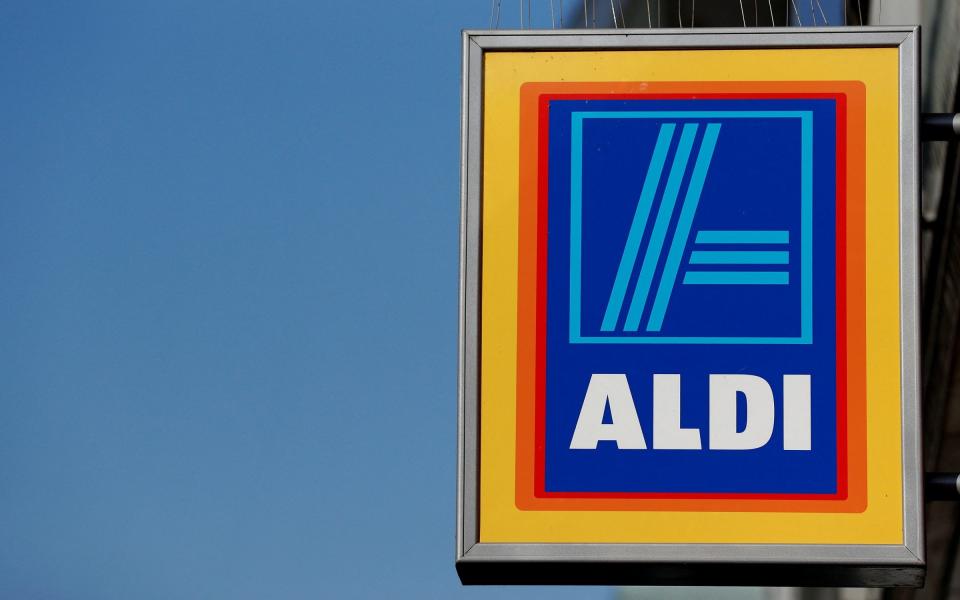Aldi to overtake Morrisons as UK’s fourth largest supermarket

Aldi is on track to overtake Morrisons as the country’s fourth biggest supermarket within weeks, buoyed by the cost of living crisis.
The German discounter increased its market share to 9.1pc in the three months to Aug 7, from 8.2pc a year ago, while Morrisons dropped from 10pc to 9.3pc, according to the latest figures from Kantar.
“In very short order we’ll be talking about a new Big Four: Tesco, Sainsbury’s, Asda and Aldi,” said Clive Black, a retail analyst at Shore Capital. “I think in the next one or two months, and there's no going back for a while.”
Aldi and fellow German discounter Lidl have been boosted by “unnatural footfall,” Mr Black said, as the cost of living crisis prompts many shoppers “who ordinarily would not be striving for deep value” to switch between grocery shops to keep costs down.
Supermarket inflation hit 11.6pc last month, Kantar said, its highest level since at least 2008.
Fraser McKevitt at Kantar said: “Products like butter, milk and poultry in particular are seeing some of the biggest jumps [in prices].”
Households are now expected to fork out an extra £533 a year, or £10.25 a week, on their supermarket shop, piling pressure on those already struggling to cope with rising energy bills and petrol prices.
While Aldi is benefiting from the pressure, “momentum has been going backwards” at Morrisons after its sale last year, Mr Black said. US private equity firm Clayton Dubilier & Rice won a £7bn auction for Morrisons last October but the deal only won approval from the competition watchdog in June.
“The acquisition of Morrisons, the amount of time it took for the mergers watchdog to look into it, there was an inability for the new owners to get into the business,” Mr Black said.
Recent data from rival research firm Nielsen showed Aldi has already overtaken Morrisons.
Morrisons has occupied the fourth spot since it took over Safeway in 2004.
Mr Black said: “We will be talking for the first time in many decades about the reconstitution of the top four.”
The German discounters, which started their assault on the UK market in the Nineties, now account for 16.1pc of the total grocery market. That is up from less than 4pc in 2008.
As well as switching supermarkets, Kantar found people are increasingly turning to own-label value products in an effort to manage rising prices. Sales of store-brand products increased by 19.7pc this month.
Tesco and Sainsbury’s have been responding to the growing pressure on customers’ budgets by promising to match Aldi on price on hundreds of items.
Other chains have been slashing prices and launching cheaper food ranges.
Traditional supermarkets were accused of being too complacent about the rise of Aldi and Lidl in the past.
Kantar’ McKevitt said: “Over the past month we’ve really seen retailers expand and advertise their own value ranges across the store to reflect demand.
“Asda’s Just Essentials line, which launched this summer, is already in 33pc of its customers’ baskets.”
Kantar found that Aldi and Lidl gained a combined 1.8 percentage points of grocery sales in the last 12 weeks, representing a £2.3bn annual shift in spending.
Asda, meanwhile, returned to growth with its sales rising by 0.2pc in the 12 weeks to August to take its market share to 13.9pc. Tesco’s sales also increased by 1.0pc and it has 26.9pc of the market.
Sainsbury’s and Morrisons' shares stand at 14.8pc and 9.3pc respectively, while Waitrose holds 4.6pc of the market.
Ocado grew by 6.2pc as it attracted new shoppers outside its traditional demographic, though its market share remained flat at 1.8pc.
Co-op’s sales rose by 0.4pc giving it 6.5pc of the market while Iceland’s grew by 2.8pc, with the frozen food chain accounting for 2.3pc of the market.
A Morrisons spokesman said: “Market share is partly a function of new store openings and although Morrisons has not put on any significant new space for a while, some competitors are still opening many new stores. But customers don't really care about market share statistics – they care about value, quality, provenance and service and that is where our focus is going to remain.”

 Yahoo Finance
Yahoo Finance 